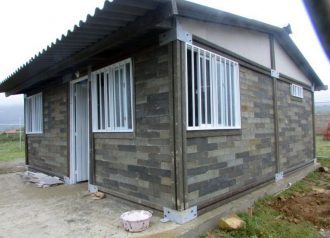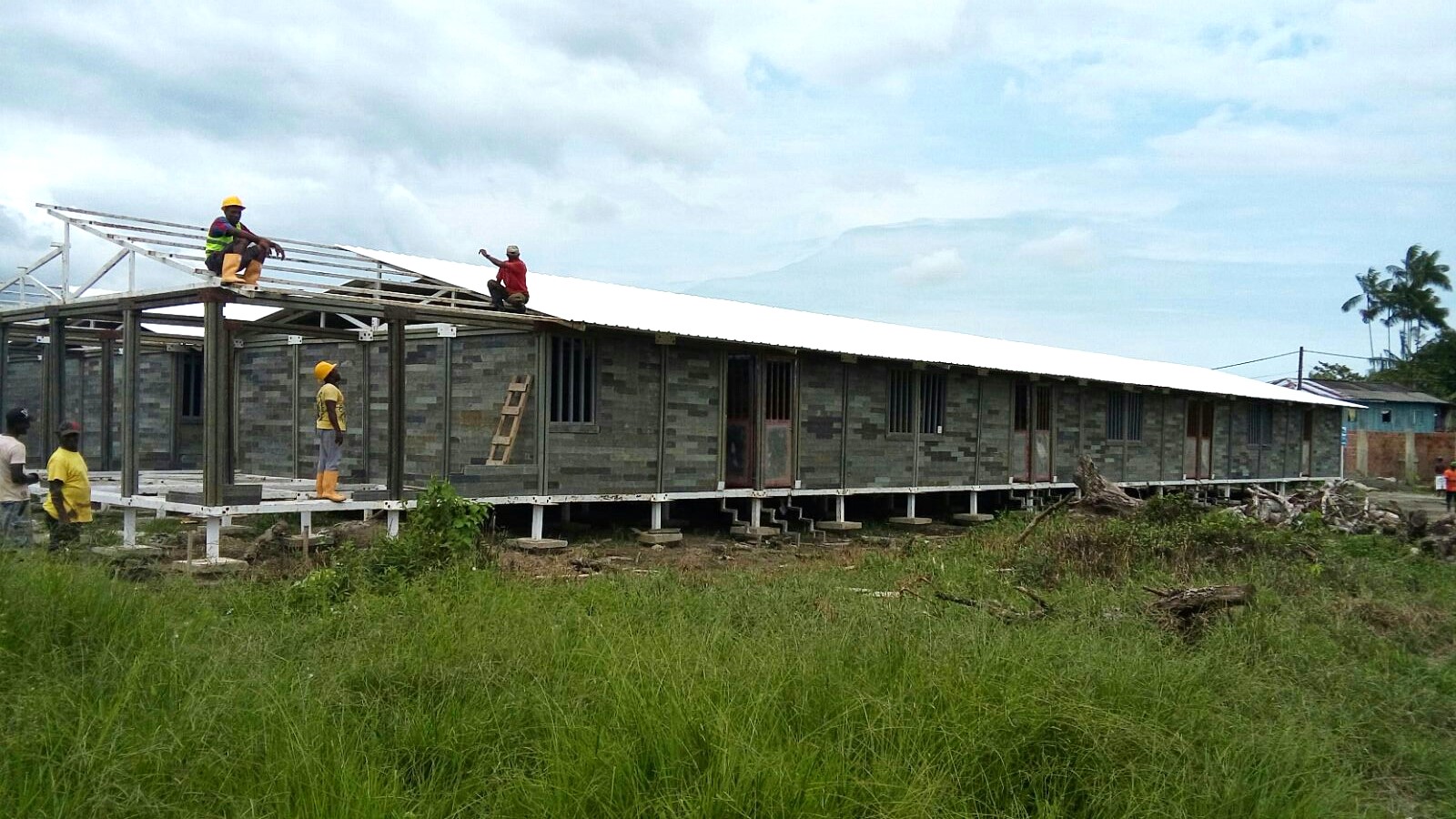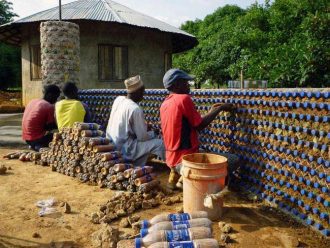Contributing writer for Wake Up World
“In Latin America, Africa and Asia 40% of people don’t have access to formal housing. In Bogota alone 750 tonnes of plastic is sent to landfill every day. It can take up to 500 years for plastic to biodegrade and 75% of plastic produced globally is either sent to landfill or not formally disposed of and so is left to pollute the environment.” ~ Unilever Sustainable Living
According to EcoWatch: Enough plastic is thrown away each year to circle the earth four times. Ninety-three percent of Americans age six or older test positive for the plastic chemical BPA. Billions of pounds of plastic can be found in our oceans, and all-out bans on plastic bags and bottled water are making little headway. To make matters worse, conventional recycling programs are ineffective at best; only two types of plastic are widely recyclable, and even then, it’s downgraded into other products which cannot be recycled further, eventually ending up in landfill, or worse, in the ocean, where plastic seriously harms wildlife, the ecosystem and our health.
[pro_ad_display_adzone id=”110028″]
While eliminating our dependence on plastic is imperative, we still have to face the reality of the plastic jungle we’ve created. So, besides educating ourselves about the dangers of plastic and avoiding it as much as possible, what options are available to minimize the impact of plastic pollution? As luck would have it, a few innovative individuals are using trash-bound plastic material in a truly inspiring way: to construct much needed shelter and housing.
Reduce Plastic Waste, Gain a Home
Oscar Andres Mendez Gerardino is a 34-year-old architect concerned about the state of the environment — as well as the lack of decent housing for his fellow humans. Joined by Henry Cañon, Isabel Cristina, Fernando Llanos and Jesus Mendez, the team launched Conceptos Plásticos in 2010 — a Colombian venture that aims to replace informal settlements with permanent housing, while also reducing plastic waste.
The company takes different types of plastic and, through a process called extrusion, blends the material with rubber to make low-cost, safe and durable “LEGO-like” interlocking bricks. Conceptos Plásticos also includes an additive to render the blocks fire-resistant. Since they’re plastic, the structures are resilient to earthquakes as well. Easy to construct — and also to dismantle and relocate — the buildings are 30 percent cheaper than traditional housing in rural areas. A standard home can be built for just US$5,200.
“So far, Conceptos Plásticos has built a temporary shelter for 42 families displaced by violence, three smaller permanent shelters (each one measuring 1,100 square meters), and eight houses.” [source]
Plans are also in the works to build 20 additional houses in the port city of Cartagena on Colombia’s Caribbean coast.
“We hope to create a movement where more and more people get involved. We want to develop new products that make better use of the thousands and thousands of tons of plastic that is discarded. There will soon be more plastic in the sea than fish, so we really need to do something big,” Oscar told Forbes.
Meanwhile, on the other side of the world, in a culture much different than Colombia, another kind of “plastic waste revolution” is taking place — only this time, discarded plastic bottles are used directly as a building material.
How to Turn 7,800 Plastic Bottles Into an Energy-Efficient, Eco-Friendly Building
Similar to Colombia, Nigeria has a mounting plastic waste problem that’s causing pollution, erosion, health issues and irrigation blockages. Every year, millions of plastic bottles are dumped into waterways and landfills. But thousands of plastic bottles that would otherwise contribute to this growing problem have been diverted to create strong — and surprisingly attractive — homes in the village of Yelwa.
John Haley of ECOTEC — the firm training locals in the building technique — said the bottles (all 7,800 of them) are filled with dry soil or construction waste, and then placed like bricks in rows which are secured together with mud. The end result is a well-insulated and inexpensive structure that resists bullets and earthquakes — an important consideration for the unstable northern regions of the country.
Moreover, the design is beautiful with curved walls and exposed bottoms of the bottles, which are suggestive of mosaic patterns. The structure is sturdy as well. “Compacted sand inside a bottle is nearly 20 times stronger than bricks,” said Yahaya Ahmed of Nigeria’s Development Association for Renewable Energies. “We are even intending to build a three-story building.” It also costs about one-third of what a standard house of concrete and bricks would run.
The house has four rooms (one bedroom, living room, bathroom and kitchen), urine filtration fertilization system, water purification tanks, and is solar powered with a fuel-efficient cook stove — reports the environmental blog Eco Nigeria.
If you’d like to try your hand at creating your own plastic bottle house, Instructables offers this easy-to-follow guide. Or if you’re not quite ready to take the plunge, have a look at “22 Facts About Plastic Pollution (And 10 Things We Can Do About It)” by EcoWatch for ideas on how to curb our plastic waste.
Oscar Andres Mendez Gerardino: Conceptos Plásticos
Article sources:
- www.wakeup-world.com/2015/05/04/plastic-is-killing-the-planet-and-our-health-heres-how-we-can-turn-the-tide
- www.unilever.com/sustainable-living/join-in/Young-Entrepreneur-Awards-2016/Oscar-Andres-Mendez-Gerardino
- www.changemakers.com/globalgoals2015/entries/re-cycled-house-closing-cycle-plastic
- www.inhabitat.com/lego-like-building-blocks-of-recycled-plastic-allow-colombians-to-build-their-own-homes
- www.treehugger.com/green-architecture/nigeria-plastic-bottle-house.html
- www.ecowatch.com/22-facts-about-plastic-pollution-and-10-things-we-can-do-about-it-1881885971.html
- www.instructables.com/id/New-Innovation-in-Construction-using-Waste-Plastic
- www.wakeup-world.com/2016/04/11/plastic-waste-in-the-ocean-will-outnumber-fish-by-2050
About the author:
 Carolanne Wright enthusiastically believes if we want to see change in the world, we need to be the change. As a nutritionist, natural foods chef and wellness coach, Carolanne has encouraged others to embrace a healthy lifestyle of organic living, gratefulness and joyful orientation for over 13 years.
Carolanne Wright enthusiastically believes if we want to see change in the world, we need to be the change. As a nutritionist, natural foods chef and wellness coach, Carolanne has encouraged others to embrace a healthy lifestyle of organic living, gratefulness and joyful orientation for over 13 years.
Through her website Thrive-Living.net, she looks forward to connecting with other like-minded people from around the world who share a similar vision. You can also follow Carolanne on Facebook, Twitter and Pinterest.
Further reading from Carolanne Wright:
- The Most Eco-Friendly Nation on the Planet is Now Carbon Negative
- Plastic Waste in the Ocean Will Outnumber Fish by 2050
- Mind Control, Subliminal Messages and the Brainwashing of America
- Monsanto Charged with Crimes Against Nature and Humanity – Set to Stand Trial in 2016
- Plastic-Eating Mushroom Discovered in the Amazon Rainforest — A Solution for Our Trash Saturated World?
- Over 100 Scientific Studies Agree: Cannabis Annihilates Cancer
- Why Every Parent Should Consider Unschooling
- First U.S. City Produces More Electricity Than It Uses — With 100% Renewable Technology
- If You Care About Animals and the Earth, Here’s Why You Need to Boycott Palm Oil Immediately
- Basic Income Guarantee: A Surprisingly Cost-Effective Method for Eliminating Poverty
[pro_ad_display_adzone id=”110027″]









